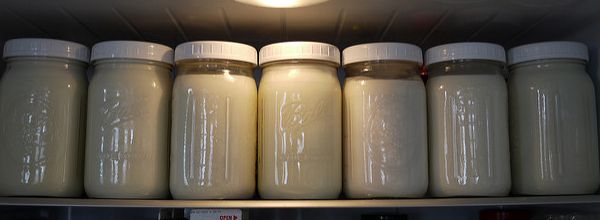You’ll know when it’s time to go. Maybe it was when they changed your project for the sixth time in six months, though your thesis proposal deadline was rapidly approaching and you had nothing to present.
Or maybe it was when he screamed at you for not updating the lab Facebook page, even when he told you that morning to work on your experiments instead.
Many incidents can bring you over the tipping point in deciding to switch PhD advisors, and when your relationship with your advisor has deteriorated to the point where going to the lab feels unbearable, deciding to leave can be easy. What’s harder is figuring out what to do next.
This set of guidelines – meant primarily for those leaving due to conflicts with their advisors – can help you transition out of your old lab and into a new one.
Keep Your Decision to Switch PhD Advisors to Yourself
Much as you may want to yell your decision over the rooftops, announcing that you’re leaving while in a heated argument with your advisor isn’t going to make your transition any easier.
This kind of emotional statement can lead to future altercations with your advisor that can ultimately deteriorate any semblance of a relationship you have left.
You should also avoid spreading news of your decision to leave – it’s better if your advisor hears about it directly from you rather than through the grapevine.
Instead, wait until you’ve figured out your next steps in transitioning out of the lab and are ready to speak to your advisor in a calm, respectful manner.
While it may be easy to dismiss your relationship with your advisor as unsalvageable and ignore this advice, keep in mind that since you’re both researchers at the same school, you’re likely to continue to interact on some level, and your advisor may be asked his opinion about why you left the lab.
Don’t make things worse than they already are.
Figure Out What You Want
It may be tempting to think that you already know what you want in a new advisor—someone devoid of the negative characteristics your current advisor has been endowed with. And while those are important characteristics to consider in a future advisor’s work style, you’ll want to be a bit more specific.
Do you want an advisor who will spend a lot of time guiding you through your project, or would you prefer one who will mostly leave you alone? New advisors are usually more hands-on than those who have been around longer, so you may want to factor that into your decision.
Are you willing to switch to a lab whose focus is in a completely different scientific field, with a whole new set of techniques to learn, or would you prefer to go somewhere you can do similar work to your current lab? Depending on how specialized your current lab’s focus is, the latter may not even be an option.
Even if it is, labs that do similar work tend to be near one another – maybe even on the same floor of the same building – and are more likely to collaborate. Are you okay with continuing to see your current advisor regularly? These are all factors to consider.
Get Some Advice
Once you’ve spent some time thinking about what you’re looking for in an advisor, talk to a neutral party who has some knowledge about the professors in your program. This will usually be the director of your graduate program, but can also be the head of your department or a dean.
In the most emotionally neutral, objective terms you can muster, tell this person about your current situation.
Remember, her only interactions with your advisor might’ve been occasional polite small talk, and if you start with an angry rant about how much of a jerk your advisor is, the person who might come across as a jerk is you. So be nice.
Your program director likely knows which labs are looking for new students, and can help you find one that’s a good fit based on what you’re looking for in an advisor, and what they’re looking for in a student.
They may even help you mediate your switch by asking professors whether they’re willing to take you on. Regardless of this person’s level of involvement, her advice will undoubtedly be helpful in your switch.
Other students can also be valuable resources, since they work more closely with professors and likely know information your program director doesn’t.
While you want to be careful with telling too many people about your switch (your advisor should hear the news from you, not someone else), keep your ears open for news about professors’ reputations and whether they’re looking for new students.
Break the News
Once you’ve begun taking steps to find a new advisor, break the news to your current advisor. Be calm and respectful, but be honest about the reasons you’re leaving.
They may disagree with your decision and not see your concerns as a problem worth leaving over or they may surprise you by agreeing that leaving is the best course of action.
Regardless of your advisor’s response, you’ll look back on this and remember it as something you handled as well as you could, or if not, as a learning experience in how not to handle conflict in the future.
Be Brave
Deciding to switch PhD advisors can be rough and changing labs isn’t easy. Both can be a major source of stress on top of the circumstances that precipitated the switch.
If you find yourself in this situation, take heart that you’re not alone—many, many students have switched labs, and done so successfully.
You’ve undoubtedly made mistakes along the way, and learning from them can help you maintain a good relationship with your future advisor.
This will be the beginning of a new phase in your grad school career, and the people skills you’ve learned will be useful wherever you go next.






